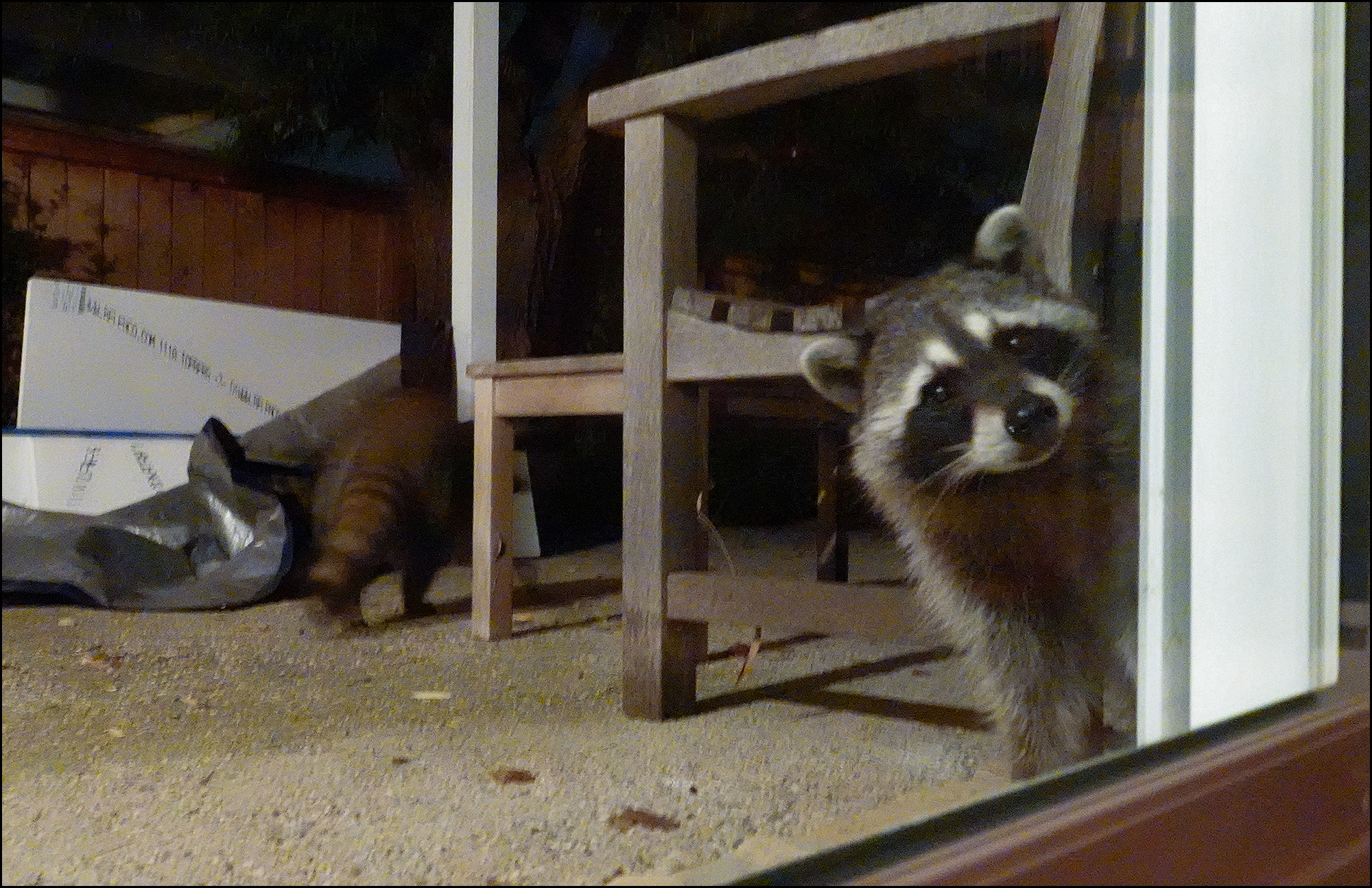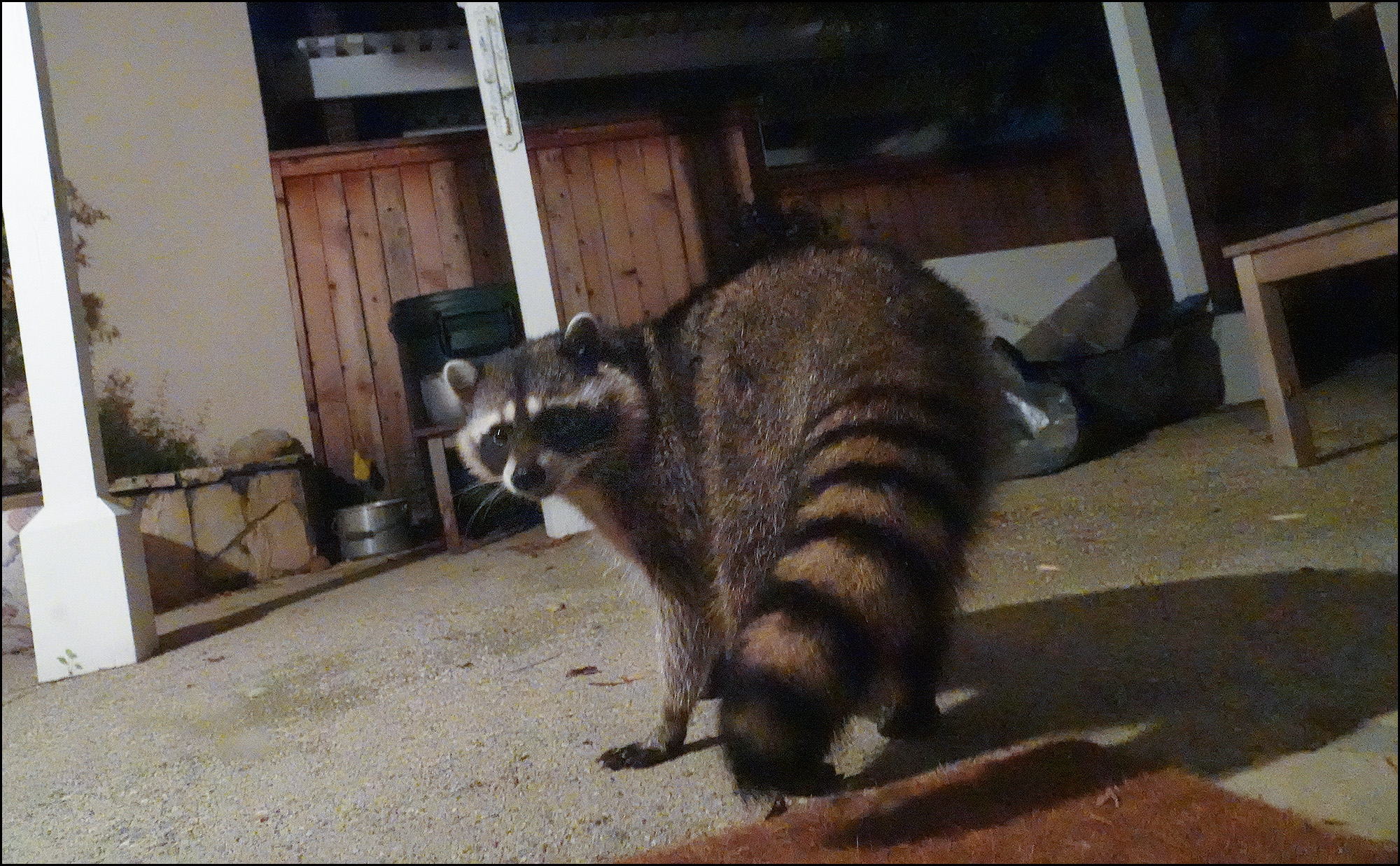It’s 3 am here on the mean streets of Irvine. It’s a dex night, so I’m wide awake. Suddenly the cats start wailing.
I stand up. Wham! Hilbert and Hopper nearly bowl me over running to the patio door. Their tails are bushy. They are hissing. I look outside.

It’s a cat wearing the damnedest fur coat I’ve ever seen. There are three of them and they want to come inside. Naturally I’m too smart to fall for that old trick: I keep the door closed while I take my pictures. Unfortunately we removed our patio lighting a few months ago and never replaced it, so it’s dark and the photos turn out blurry and grainy. But it’s enough. They know I’m on to them and eventually they go away.

According to my wildlife guide, this is a breed of cat known as “raccoon.” Elsewhere in Southern California, mountain lions are roaming backyards and bears are ambling down the streets of Monrovia. Here, we just have hungry raccoons.













